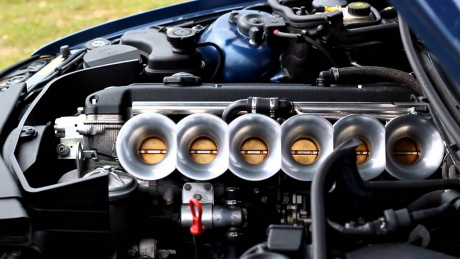
Car drivers usually have many questions about the car air filters. They wonder if an air filter is a necessary component in a vehicle. Also, concerns about removing it from the car and its effects, we'll discuss every detail in this article for you.
Let's first discuss the significance of an air filter.
The role of an air filter in the car
The air filter plays a vital role in your car. You must know that the combustion process needs a combination of fuel and oxygen. Without both or one of the two, your engine won't work. Now, where does the engine gets oxygen from? Well, it gets it from the air. And that's why the quality of air matters. The air filter prevents all dirt, dust, and rubble from entering your engine.
If you insist on removing the air filter, chances are your engine wouldn't last long. The accumulated dust and rubble would damage it eventually, costing you a lot of money.
Is it possible to start a car with no air filter?
You can start a car if the air filter is missing. The air flows even better when there's no air filter. But, that increase in the air won't make much difference. So, there must be other reasons like battery issues or spark plugs for your car not starting.
How far can a car drive without an air filter?
The car can drive alright with no air filter, and you'll notice that it has become more responsive. But, it is not recommended to operate for a long time without an air filter. You could travel short distances, but far-off places won't be good, especially if it's off-road. All the dirt and rubble will accumulate in the engine, proving detrimental to its working.
What are the consequences of driving with a wet air filter?
A wet air filter doesn't cause any significant problems. The point is that an air filter stops all the impurities like dust and rubble, but that's not all of it. It also sucks whatever water gets in, whether from rain or a puddle. That water makes your air filter damp, and it isn't enough to cause serious issues. Also, when the engine is running, it gets super hot and evaporates that little water anyway.
The problem can get real when the air filter gets waterlogged, though. This would slow down your engine, and the car won't be responsive or fast anymore.
The benefit of removing an air filter
More horsepower: More horsepower is the only benefit of removing an air filter. But that 1-2 upgrade in horsepower is pretty insignificant, and you'll barely notice it. It's not worth risking the life span of your engine. Also, to increase the engine's power, you'd need to try other stuff like changing exhaust pipes and the intake system. The removal of an air filter won't impact it much.
The disadvantages of removing an air filter
Risk of damaging the engine: There's a high risk that with no air filter, the engine might collapse. The reason is simple. It would eventually fail when nothing prevents the rubble, dirt, dust, and insects from entering the engine.
Risk of damaging the turbo: If you've installed turbo in the car for high speed and performance without an air filter, it can get damaged. It is responsible for air compression and sending it directly to the engine to aid quick combustion.
Final Thoughts
We believe that driving without an air filter in the car is not a good idea. If you don't want to lose money on replacing the engine in the long run, then you must use an air filter. Also, you'd have to maintain it and keep it clean for it to function well.
Same articles

Bridgestone Potenza Re980as vs Michelin Pilot Sport A/S 3 (W- or Y-Speed Rated): What is better to choose?
GuidesIt's time to replace the all-season tires on your car, and you're trying to decide between

2020 Honda Ridgeline: Is it worth it?
GuidesThe 2020 Honda Ridgeline carves out its own niche among pickup trucks. It's not as burly as a full-size truck, but it has more towing and hauling capability than most crossover SUVs. This...

What are car speakers for and should they be installed?
GuidesCar speakers serve two main purposes. The first is to provide high-quality sound reproduction of music, and the second is to act as a safety measure by amplifying sounds from outside the vehicle...
